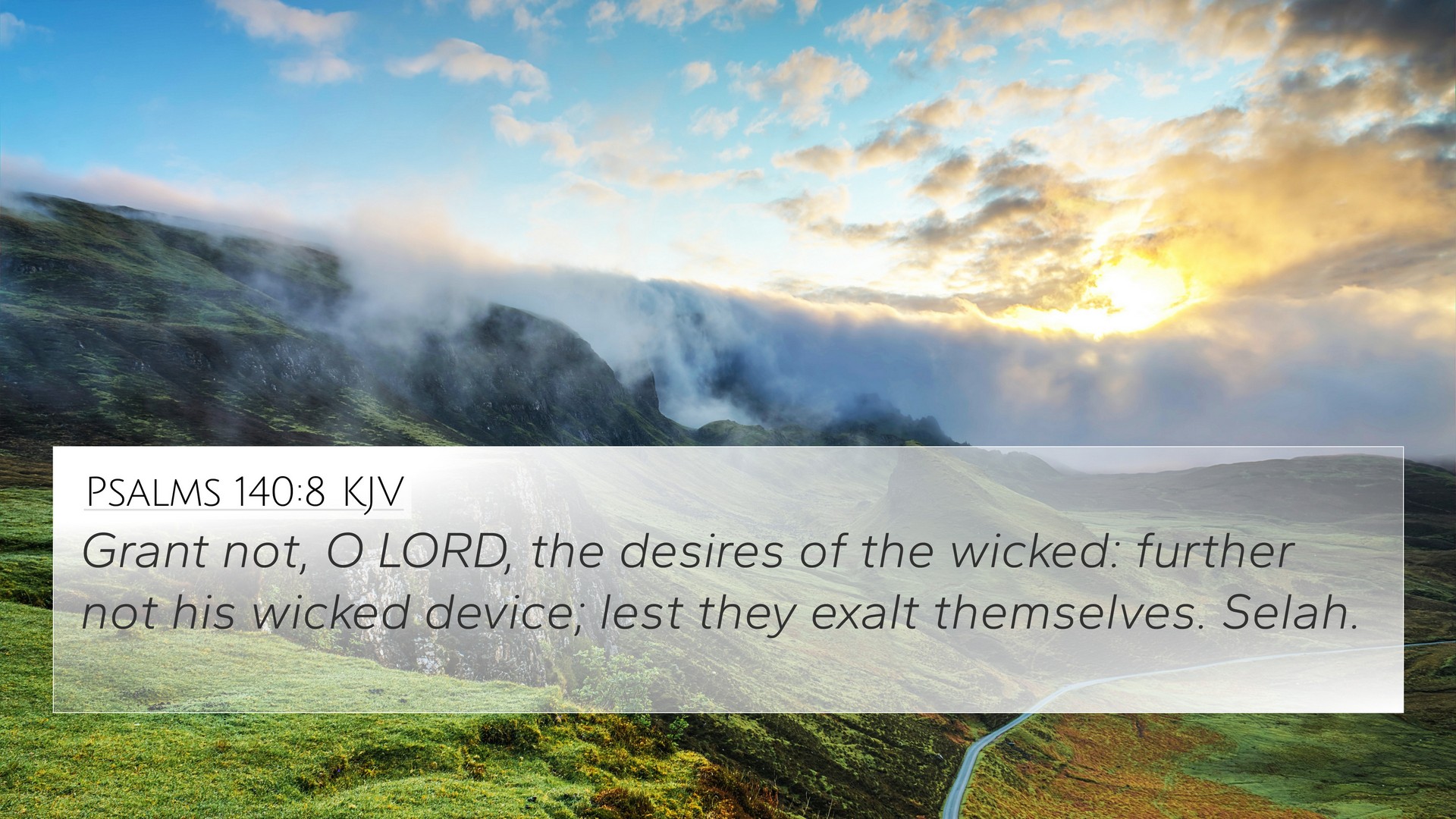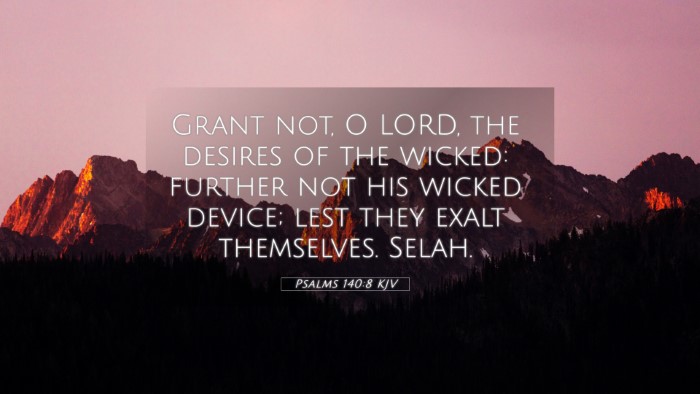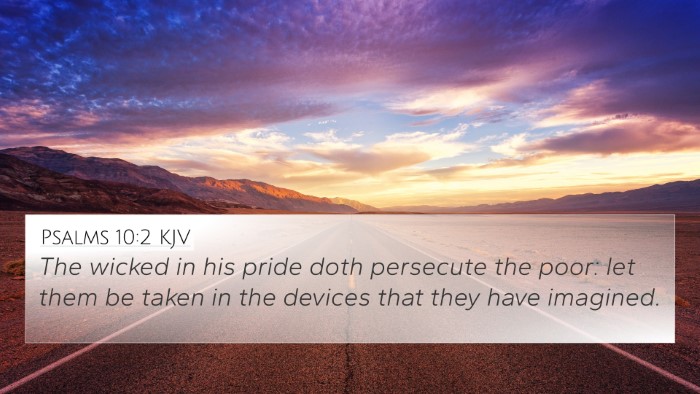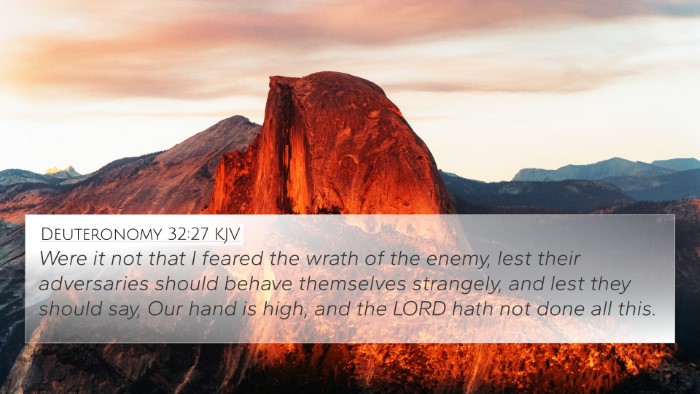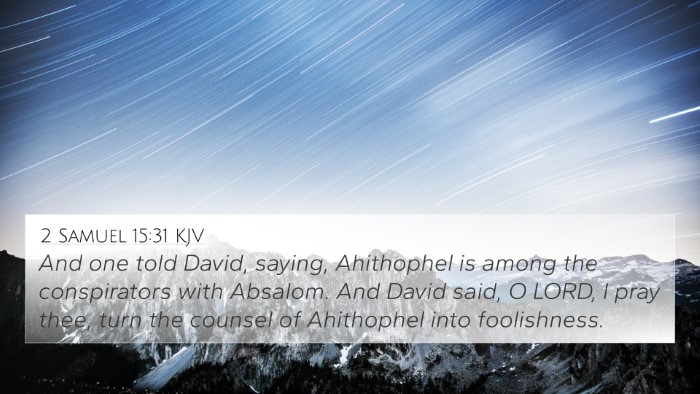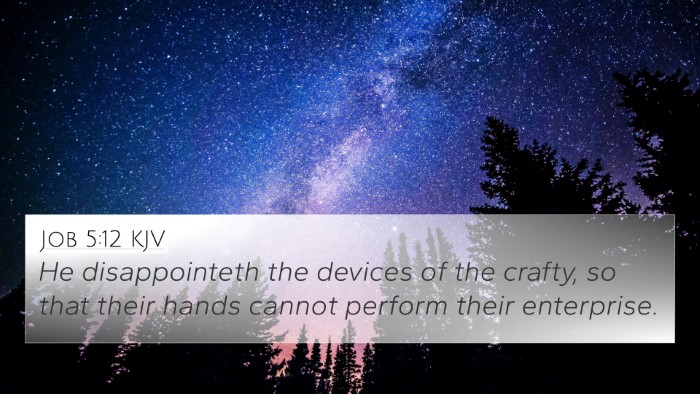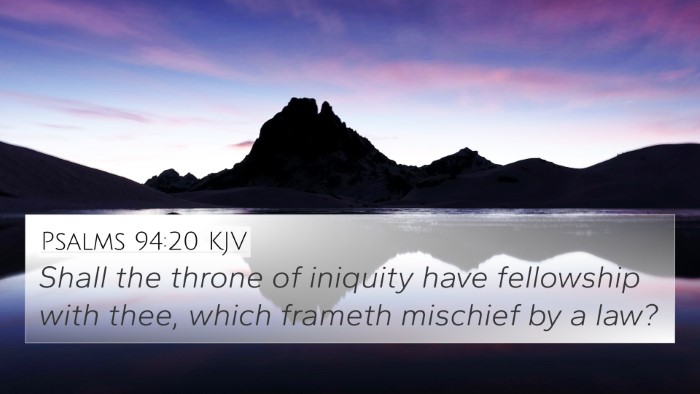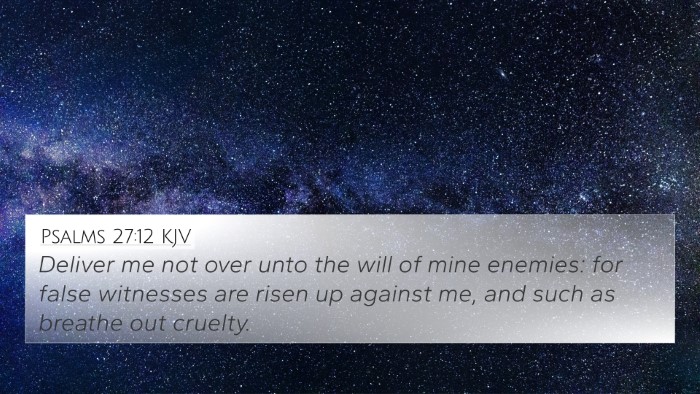Understanding Psalms 140:8
Psalms 140:8 states: "Grant not, O LORD, the desires of the wicked: further not his wicked device; lest they exalt themselves." This verse reflects a prayer of the psalmist in which he seeks divine intervention against the evil plans of the wicked.
Summary of the Verse's Meaning
The psalmist implores God not to grant the desires of those who are wicked, ensuring that their plans do not come to fruition. This highlights a central theme in the Psalms of seeking God's protection and justice against wrongdoing. The verse illustrates an awareness of the nature of human evil and a call for divine action to prevent the exaltation of wickedness.
Insights from Public Domain Commentaries
- Matthew Henry: Henry emphasizes the necessity of God's intervention in thwarting the ambitions of the wicked. He suggests that the desires of the wicked are opposed to God's righteousness and that their success would lead to a greater proliferation of evil.
- Albert Barnes: Barnes points out the earnestness of the psalmist's request, noting that it reflects a deep concern for moral integrity and divine justice. He interprets the mention of "exalting themselves" as a warning against the pride that often accompanies iniquity.
- Adam Clarke: Clarke discusses the historical context of Psalms 140, noting that it was likely written during a time of great distress for the psalmist. He interprets the verse as a plea for God's sovereignty to prevent wrongdoers from achieving their ends.
Thematic Connections with Other Scriptures
Psalms 140:8 can be viewed through the lens of several other Bible verses that resonate with its themes of divine protection, the nature of wickedness, and the psalmist's reliance on God:
- Psalm 36:1: "The transgression of the wicked saith within my heart, that there is no fear of God before his eyes." This verse echoes the theme of the heart's desires being twisted away from God.
- Psalm 10:4: "The wicked, through the pride of his countenance, will not seek after God: God is not in all his thoughts." This suggests the self-exaltation mentioned in Psalms 140:8.
- James 4:3: "Ye ask, and receive not, because ye ask with wrong motives, that ye may spend it on your pleasures." Both verses address the desires of the heart and their alignment with God's will.
- Proverbs 21:4: "A high look, and a proud heart, and the plowing of the wicked, is sin." This connects to the notion of the wicked exalting themselves through their plans.
- Matthew 6:13: "And lead us not into temptation, but deliver us from evil: For thine is the kingdom, and the power, and the glory, forever. Amen." Both scriptures reflect a request for God's guidance and protection from evil.
- Psalms 7:9: "Oh let the wickedness of the wicked come to an end; but establish the just: for the righteous God trieth the hearts and reigns." This verse directly calls upon God to intervene against wickedness.
- Romans 12:19: "Dearly beloved, avenge not yourselves, but rather give place unto wrath: for it is written, Vengeance is mine; I will repay, saith the Lord." This scripture also indicates trust in God to uphold justice.
Cross-Referencing as a Tool for Understanding
Understanding Bible verses through cross-referencing enriches one's knowledge and provides deeper insights into the text. Various tools are available for cross-referencing, such as:
- Bible Concordance: A useful tool for finding connections between various verses based on keywords.
- Bible Reference Resources: Guides that provide thematic verses, allowing readers to see connections or parallels.
- Bible Chain References: A method of linking passages thematically, which can assist in deeper comparative studies.
- How to Use Bible Cross-References: Techniques suggest looking for thematic connections or keywords when studying scripture.
Practical Application for Study
When studying Psalms 140:8 and its related verses, one can:
- Identify Connections: Focus on cross-references that discuss themes of justice and righteousness.
- Explore Context: Examine both the immediate context of Psalms and the broader narrative of the Bible.
- Utilize Resources: Engage with reference materials and commentaries to gain multiple perspectives on interpretations.
- Reflect on Personal Application: Consider how the desires of one's heart align with God’s will and justice.
- Encourage Discussion: Discuss these themes in Bible study groups to explore diverse insights and interpretations.
Conclusion
Psalms 140:8 serves as a powerful reminder of the necessity of divine justice against wickedness. By engaging in cross-referencing and thoughtful study, believers can deepen their understanding of both this verse and related biblical themes, enhancing their spiritual journey and comprehension of God's word.
